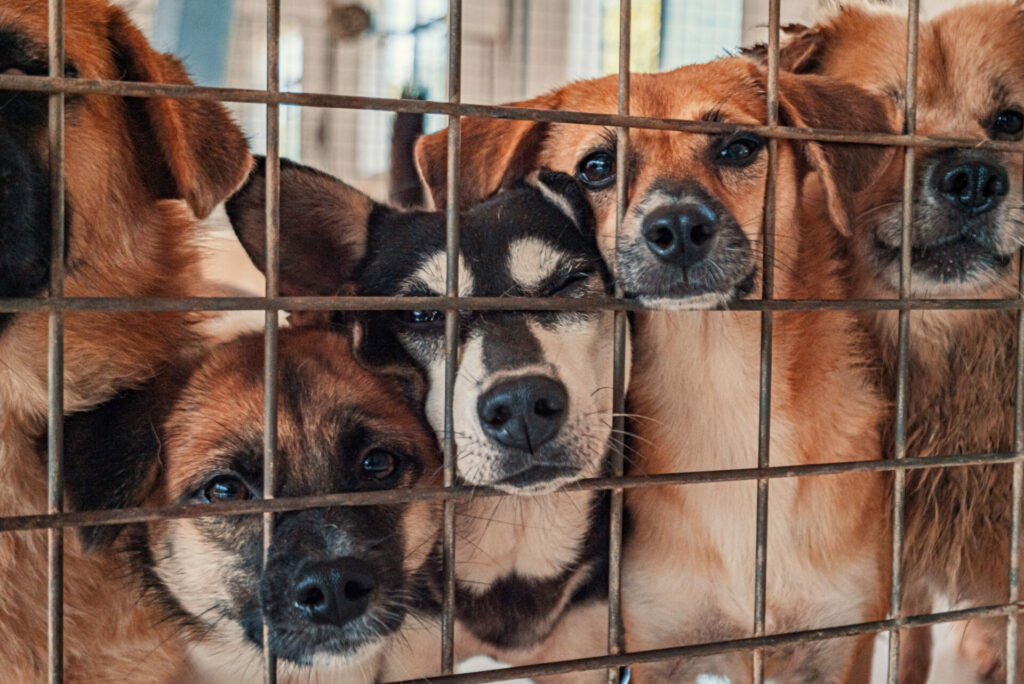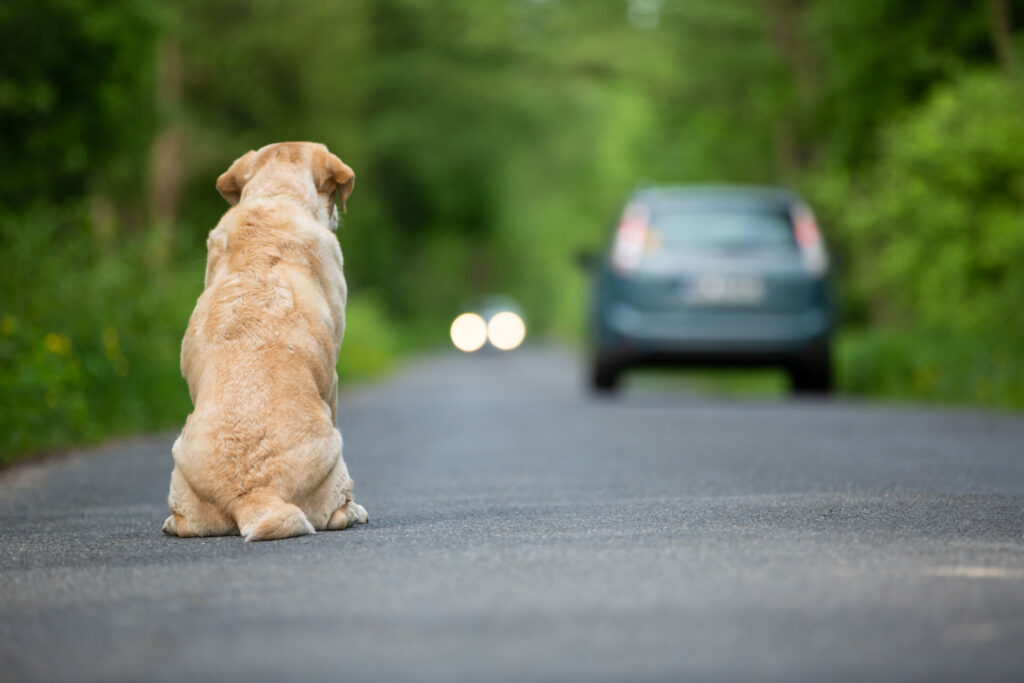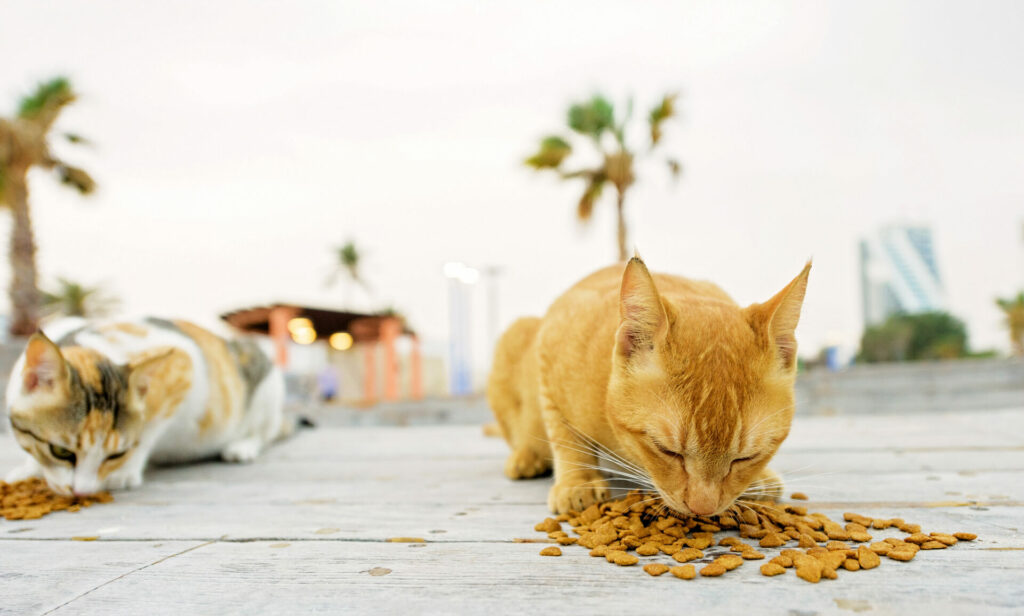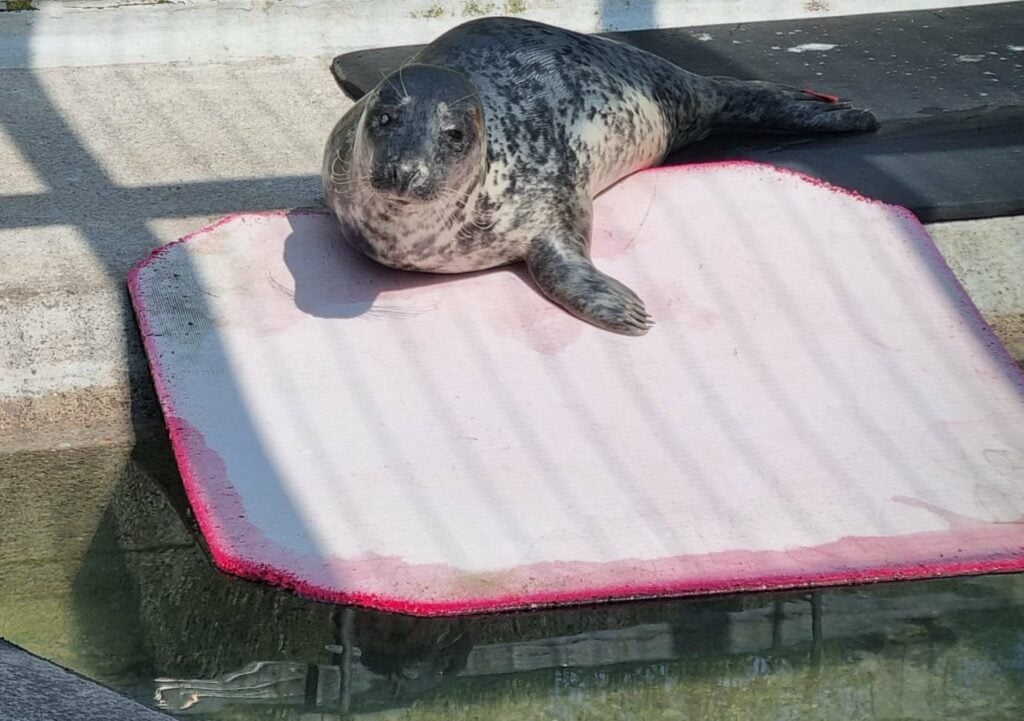It’s no secret that the UAE has a huge problem with stray cats. Vast cat colonies have sprung up across Abu Dhabi and Dubai, and even walking around major tourist spots such as the capital’s corniche you’ll likely find a skinny cat or litter of tiny kittens.
In 2019 there were an estimated 100,000 stray cats in Abu Dhabi alone, and tens of thousands more in Dubai and it seems the problem is only growing worse.
Back in 2008, the Abu Dhabi government launched a TNR (trap neuter release) campaign, but it has proved impossible to reach all the animals before they breed. After all, veterinary experts predict that one cat can birth up to 100 kittens in their lifetime, including up to three litters per year.
Stray dogs are becoming increasingly common too with the growing fashion for pet dogs contributing to the stray problem. The number of pet dogs in the UAE grew by more than 10,000 between 2016 and 2020 and even though pet abandonment was made a criminal offence in 2018, more and more puppies and dogs are being dumped on the streets.

There are dozens of rescue groups across the country, but many have too many animals to manage. Fiona Watson, Head of Adoptions at Dubai’s Stray Dog Center, explains that the numbers of abandoned dogs surge even more after the festive period.
‘We brace ourselves every January for an influx of dogs,’ she says. ‘It’s the same during Ramadan and just before the summer when everyone goes on holiday. This summer we found two dogs tied to a tree in a park – just dumped there. You think these things don’t happen, but believe me they do.’
I don’t know if dumping pets is more prevalent here because people have a lot more disposable income. Some people just treat animals like they are replaceable.’
Fiona Watson, Dubai Stray Dog Centre
Despite the enormous financial and emotional responsibilities that come with having a pet, it seems that people across the world still like to give cats and dogs as Christmas presents.
A survey by The Humane Society of the United States revealed that seven per cent of pet cats and dogs in the USA were given as gifts, and British charity, the RSPCA, famously declared that three pets are abandoned every hour in the UK during the Christmas period.
‘A lot of dogs are brought in when people realise that they’re not a toy and they don’t have an on and off switch,’ Fiona explains.

‘Someone once surrendered a little poodle puppy, just 10 days after buying him for AED 8,000, because he was ‘untrainable’. They have never once called to ask how he is since. I don’t know if dumping pets is more prevalent here because people have a lot more disposable income. Some people just treat animals like they are replaceable.’
Rasika Munasinghe, Founder of Nine Lives cat adoption organisation, has similarly shocking stories.
‘It doesn’t just happen at Christmas – people get cats as presents all the time and then get rid of them,’ she says.

‘With some families, the kids love playing with them for as long as they are kittens. But then if they’re not nurtured, the cat will start spraying inside the house and that’s when they get kicked out or dumped somewhere. It’s a really, really sad situation. I get about 30 messages a day from people who want to give away their cats, but hardly any from people who want to adopt.’
Growing Numbers of Stray Pets
Many rescue centres in the UAE rely solely on private donations. The volunteers pay all the vet bills, house the cats, and do the rehoming.
‘Finding fosterers is very difficult, especially during the holidays when people want to travel. Our homes are filled with cats, most of us have up to 20 or 30 with two or three in a cage. We’re really struggling,’ Rasika says.
‘We purposefully slow down our adoptions until Christmas is over. We have to get it right first time, it’s not really rescuing if we take them off the streets and then give them to another unsuitable family’
Fiona Watson, Dubai Stray Dog Centre
But even though the numbers of unwanted pets is growing, Fiona deliberately avoids rehoming any dogs in December.
‘It is simply unacceptable to give a dog as a gift,’ she declares. ‘So, we purposefully slow down our adoptions until Christmas is over. We have to get it right first time – it’s not really rescuing if we take them off the streets and then give them to another unsuitable family. Last January we had three purebred puppies handed to us that weren’t wanted anymore. It’s crazy.’
Pets: A Big Commitment
In some cases, cats and dogs are abandoned by expats because relocating with them is too expensive. Taking a dog back to India costs up to AED12,000, and up to AED 8,000 to the UK.
The COVID-19 pandemic also caused an increase in unwanted pets as people became sick, lost their jobs, struggled to care for them or simply grew bored of looking after a cat or dog during lockdown.
‘This year we’ve taken in 50 cats whose owners had lost their jobs due to COVID-19 and couldn’t afford to care for them anymore,’ Rasika says.

‘Things are getting slightly better, but still the adoption rates aren’t as high as before the pandemic. We try to help people willing to give the unwanted pets a home as much as we can. We offer reduced relocation rates, and we work with a charity called Desert Paws in the UK that helps us find homes over there. We cover the entire relocation fee for UK-based adopters.’
Arabian Maus,one of the most common breeds of cat in the UAE, are often adopted overseas as they are not as popular here.
‘They don’t give the mothers time to recover either, they just use them like breeding mills. Then, when they get sick, they dump them in the garbage where people like us try to rescue them.’
Rasika Munasinghe, Nine Lives
‘People in the UAE want the fancier breeds, but the more these are bought, the more it encourages the breeders. The Sharjah animal market is an awful sight. Animals are stuffed together with no food or water and they force them to breed. They don’t test them for contagious diseases and a lot of the kittens don’t survive,’ Rasika continues.
‘They don’t give the mothers time to recover either, they just use them like breeding mills. Then, when they get sick, they dump them in the garbage where people like us try to rescue them.’
Help is Needed
Both volunteers agree that the only way to reduce the numbers of strays is a mass TNR (trap, neuter, release) campaign.
‘It has to be tackled from the ground up,’ Fiona says. ‘We found a dog this week who was on her last legs after giving birth to 11 puppies. That’s an extraordinary number. If all the rescue groups came together, we could sort out the stray issue in two years.’
To adopt, foster or volunteer with the Stray Dogs Center, please visit straydogscenteruae.com, or for Nine Lives visit ninelives.ae.
Other reputable adoption centres include:













